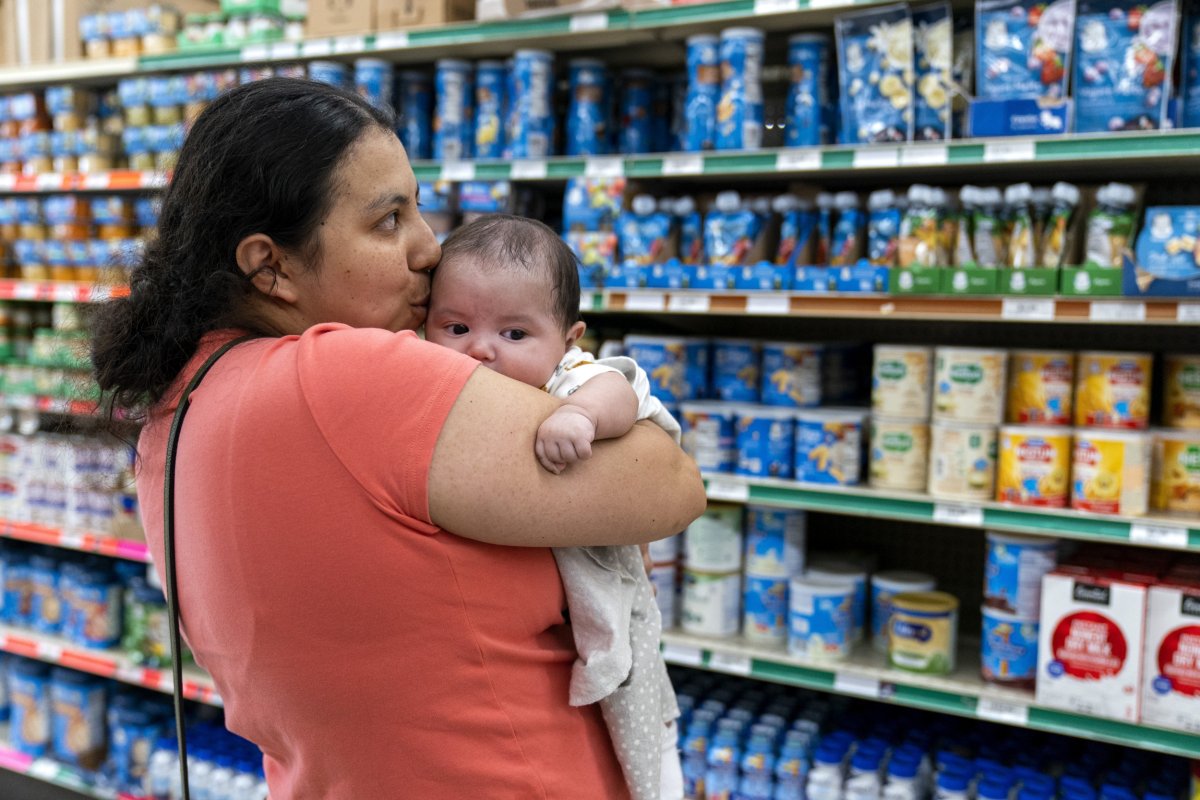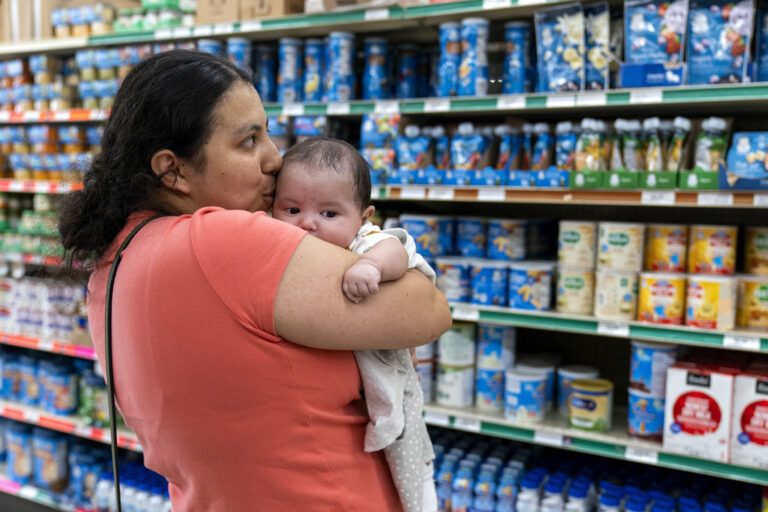President Donald Trump’s sweeping new tariff policies could significantly raise the price of imported baby formula, a product many American parents rely on.
The new measures repeal key exemptions previously in place and impose across-the-board import duties on goods from countries including those in the European Union, where many popular baby formula brands originate.
Why It Matters
A 2022 law passed by Congress temporarily lifted tariffs on baby formula imports to ease a nationwide shortage.
Trump’s new tariffs, which he described as applying to “all countries,” do not appear to exempt baby formula, and could reinstate the same burdens Congress previously moved to eliminate.
While pharmaceuticals received an explicit carve-out, formula was not included in the exemptions published by the White House. Depending on the country of origin, this could translate into substantial increases in the cost of formula for U.S. families.

AP Photo/Jacquelyn Martin
What to Know
Trump’s newly signed executive orders impose a minimum 10 percent tariff on imports from all countries, with reciprocal rates applied to countries running large trade surpluses with the U.S.
Imports from the European Union—where leading baby formula brands like HiPP and Holle are manufactured—will be subject to a 20 percent tariff, according to Fierce Healthcare.
Pharmaceuticals received a narrowly defined exemption, limited to specific drugs and compounds. Baby formula was not specifically included in that list.
Newsweek reached out to the White House for comment via email.
Tariffs on formula imports from Canada could be particularly costly. A recent study found that a 25 percent tariff on Canadian drug products alone would add $750 million in annual costs. For baby formula, where prices are already volatile and shortages have occurred recently, new tariffs could increase retail prices significantly, trade experts warn.
Government subsidies and federal programs also complicate the formula market.
The Special Supplemental Nutrition Program for Women, Infants and Children (WIC), which purchases about half of the U.S. supply, heavily limits the formula brands available to families, according to an NPR analysis. That restriction made it difficult to import new supply during the 2022 shortage.
“Eventually, the shortage was relieved with the help of imported baby formula,” NPR reported, “but only after a months-long delay while government restrictions were relaxed.”
What People Are Saying
Alex Beene, a financial literacy instructor for the University of Tennessee at Martin, told Newsweek: “Few Americans would disagree with the concept of promoting purchases of products made within their own country. At the same point, putting a more heavy reliance on American-produced items could lead to supply issues down the line. We saw this with baby formula over the past few years, when the closure of just one factory curtailed availability for the entire country and had parents panicking.”
David Warrick, EVP at Overhaul, a supply chain risk management company, told Newsweek: “Baby formula is a particularly sensitive category. If tariffs are placed on European-made formula, we could see a repeat of the supply stress we experienced in recent years—higher prices, tighter inventory, and limited options for parents. In a category where safety, nutrition, and availability are non-negotiable, even slight disruptions have outsized consequences.”
What’s Next
As the tariffs take effect, advocacy groups and healthcare experts are already pressing for exemptions. The White House has not yet clarified whether baby formula might be added to the exemption list.
“Having imported formula is an option in making sure those shortages don’t occur, and adding to the cost of it creates yet another added expense for financially strapped parents,” Beene said.


